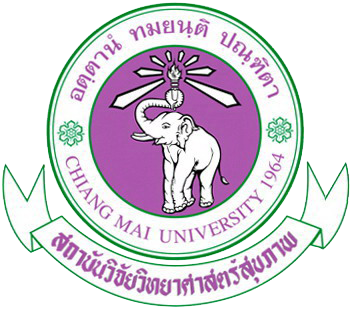IMPAACT P1078
Study title
A phase IV randomized double-blind placebo-controlled trial to evaluate the safety of immediate (antepartum-initiated) versus deferred (postpartum-initiated) isoniazid preventive therapy among HIV-infected women in high TB incidence settings
Study Code
IMPAACT P1078
Network
IMPAACT
Study PI
Prof. Virat Sirisanthana, M.D.
Study Co PI
Assoc. Prof. Pannee Sirivatanapa, M.D.
Assist. Prof. Fuanglada Tongprasert, M.D.
Linda Aurpibul, M.D.
Study sites
About 15 research sites around the world ( conducting in South Africa, Botswana, Malawi, Tanzania, Uganda, Zimbabwe, India, and Thailand)
Funding agency
International Maternal Pediatric Adolescent AIDS Clinical Trials Group (IMPAACT) Sponsored by Division of AIDS (DAIDS), National Institute of Allergy and Infectious Disease (NIAID), National Institute of Health (NIH), US
Study design
This study is a Phase IV, randomized, double-blind, placebo-controlled non-inferiority study to determine overall safety as well as the other risks and benefits of immediate versus deferred INH in HIV-infected pregnant women and their infants, enrolled at ≥ 14 through ≤ 34 weeks (34 weeks, 6 days) gestation, at high risk for TB (i.e. resides in high TB incidence area defined as having 60 TB cases per 100,000 population in the WHO TB annual report) infection and disease.
Study objective
1. Primary Objectives:
To compare overall safety and toxicity of immediate versus deferred INH preventive therapy in HIV-infected pregnant women enrolled at ≥ 14 through ≤ 34 weeks gestation (34 weeks, 6 days) and by HAART strata.
2. Secondary Objectives:
- To compare safety and toxicity of INH on fetus and infants on study.
- To compare TB incidence and all-cause mortality in HIV-infected women and their infants enrolled on study.
- To evaluate for INH resistance among M.tb. isolates from HIV-infected women and infants who develop TB while on study.
- To evaluate the intensive pharmacokinetics of INH and ART in a subset of HIV-infected pregnant and postpartum women receiving HAART.
- To evaluate and compare the performance characteristics of IGRA (TB ELISPOT and QGIT) with TST in HIV-infected women and their infants.
- To compare adherence in women initiating immediate versus deferred INH preventive therapy.
- To compare hepatotoxicity rates and evaluate risk factors for hepatotoxicity in immediate versus deferred INH therapy.
Number of participants to be enrolled (overall/at RIHES)
HIV infected
950 women/and their infants will take part in this study at all sites.
For the Research Institute for Health Sciences and the Faculty of Medicine, Chiang Mai University will enroll approximately 40 pairs of participants (mothers and their infants) in this study.
Year: started
2014
Year: expected to finish
2018
Significance
The main reason for this study is to see if INH (Isoniazid, a medication commonly used to treat or prevent TB) is safe in HIV positive pregnant women. The study team want to see if INH protects pregnant women and their babies from getting TB. This study will also try to find out if starting INH during pregnancy is as safe as waiting until after delivery for their newborn babies. There have been many studies of INH in HIV positive people but few in pregnant women. This study will also try to find out other ways to diagnose TB in both mothers and their babies; it will look at how INH can affect the way the immune system reacts to TB or the TB vaccine, Bacille Calmette-Guérin (BCG) and will check INH levels in mothers’ blood.
Study website (if any)
http://impaactnetwork.org/studies/P1078.asp




